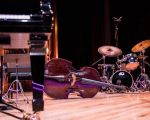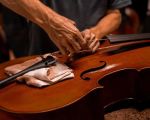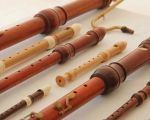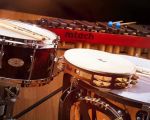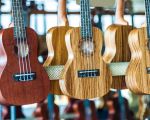- 1-understanding-your-music-genre-and-its-characteristics
- 2-matching-instrument-sound-to-genre-style
- 3-considering-technical-skill-and-learning-curve
- 4-exploring-popular-instruments-for-different-genres
- 5-personal-preference-and-experimentation
- 6-real-stories-of-musicians-choosing-instruments
- 7-how-beat-trigger-can-assist-your-instrument-selection
1. Understanding Your Music Genre and Its Characteristics
Choosing the best instrument for your music genre starts with a deep understanding of the genre’s sonic landscape and cultural context. Different genres emphasize particular sounds, rhythms, and textures that define their identity. For example, rock music often centers around electric guitars and drums, while jazz embraces brass and woodwind instruments.
Knowing these characteristics helps narrow down the instruments that complement your style and creative goals.
2. Matching Instrument Sound to Genre Style
The instrument you select should blend seamlessly with the genre’s stylistic elements. For instance, a bright, punchy trumpet fits perfectly in funk or jazz, whereas a mellow saxophone suits blues or soul music.
Pay attention to tone, range, and expressiveness, ensuring your instrument enhances the genre’s mood and message.
3. Considering Technical Skill and Learning Curve
Another crucial factor is your current technical skill and willingness to learn. Some instruments, like the piano or guitar, have beginner-friendly entry points, while others, such as the violin or trumpet, may require more practice to master basic techniques.
Balancing your aspirations with realistic learning expectations ensures a satisfying and sustainable musical journey.
4. Exploring Popular Instruments for Different Genres
Each music genre has a set of instruments frequently associated with it:
- Rock: Electric guitar, bass guitar, drums.
- Jazz: Saxophone, trumpet, double bass, piano.
- Classical: Violin, cello, piano, flute.
- Electronic: Synthesizers, drum machines, MIDI controllers.
- Country: Acoustic guitar, banjo, fiddle, pedal steel guitar.
Exploring these options allows you to align your instrument choice with genre traditions and innovations.
5. Personal Preference and Experimentation
Ultimately, personal connection to an instrument plays a vital role. Experimenting with different instruments can uncover unexpected affinities and inspire creativity beyond genre boundaries.
Visiting music stores, attending workshops, and trying out instruments helps develop this personal insight.
6. Real Stories of Musicians Choosing Instruments
Take Anna, a jazz enthusiast, who initially focused on piano but found her true voice through the saxophone after a local music session. Or Mike, a rock guitarist, who incorporated the mandolin to add a unique twist to his band’s sound.
Their experiences highlight how the right instrument can evolve with your style and open new creative paths.
7. How Beat Trigger Can Assist Your Instrument Selection
Beat Trigger offers curated reviews, expert advice, and comparison tools to guide you in selecting the best instrument for your music genre. From beginner-friendly options to professional-grade instruments, our platform connects you with trusted sellers and tailored recommendations.
Visit Beat Trigger to explore the full range of instruments and find gear that inspires your musical expression.


